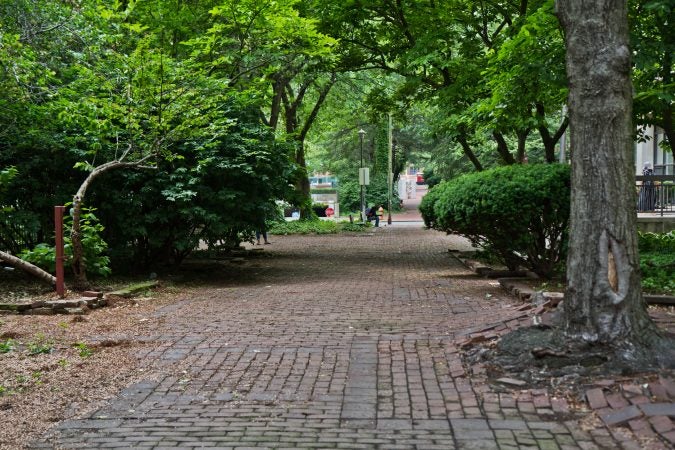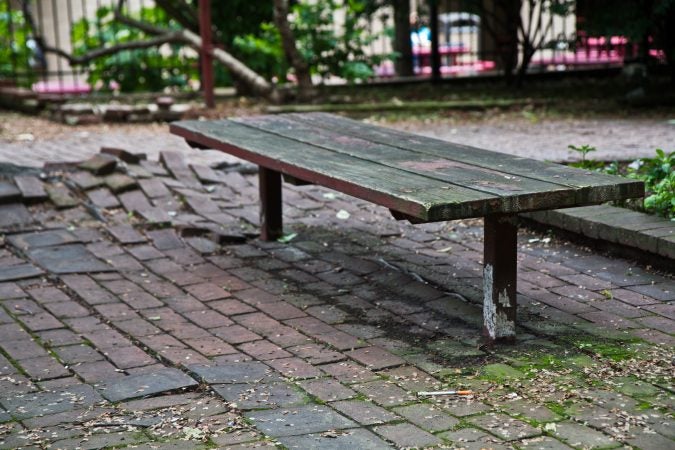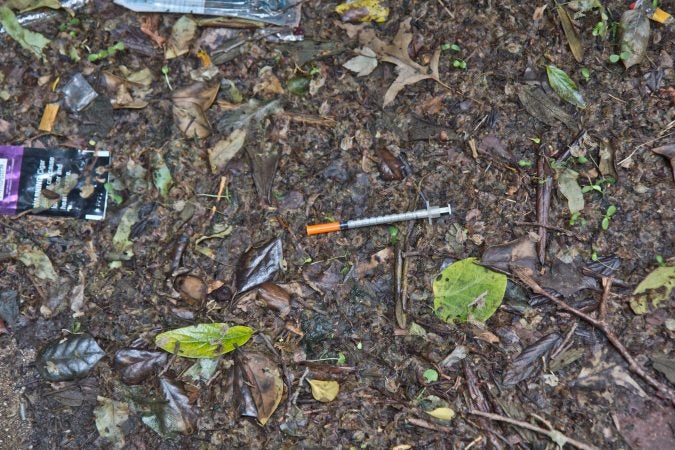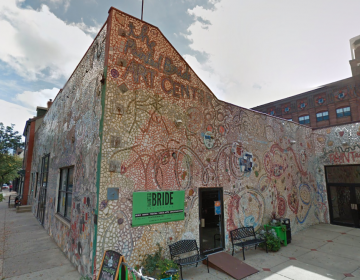Redesigning an Old City green space for park use, not drug use
Community members see discarded syringes in the Old City walkway known as Commerce Street. With a $1.25 million redo, they hope to make it less secluded.
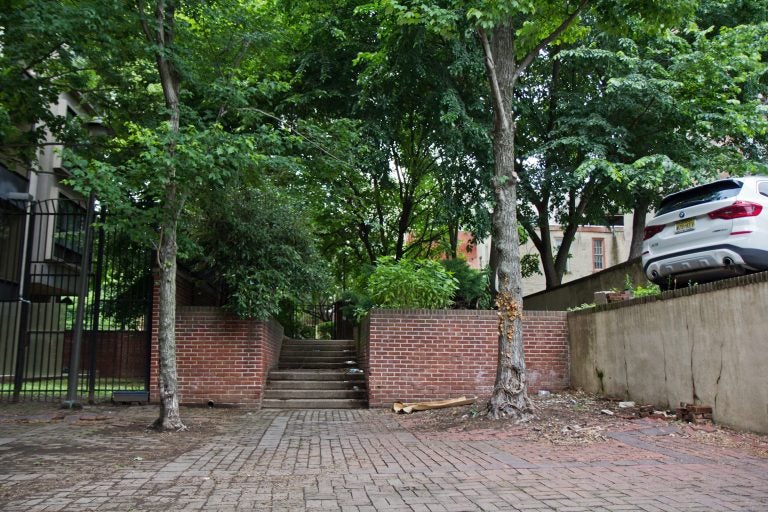
Neighbors say there’s been a spike in drug use and public sleeping at Old City’s hidden Commerce Street path. (Kimberly Paynter/WHYY)
Adam Teterus takes a shortcut to the gym after work through a space some people in Old City prefer to avoid. The back corner of the T-shaped walkway and public plaza hidden behind the Colonial Penn building is strewn with litter — takeout containers, beer cans, and other startling objects that he often doesn’t notice until he steps on them.
“This is where I most often hear a crunch under my shoe, and look down and it’s a needle,” Teterus said.
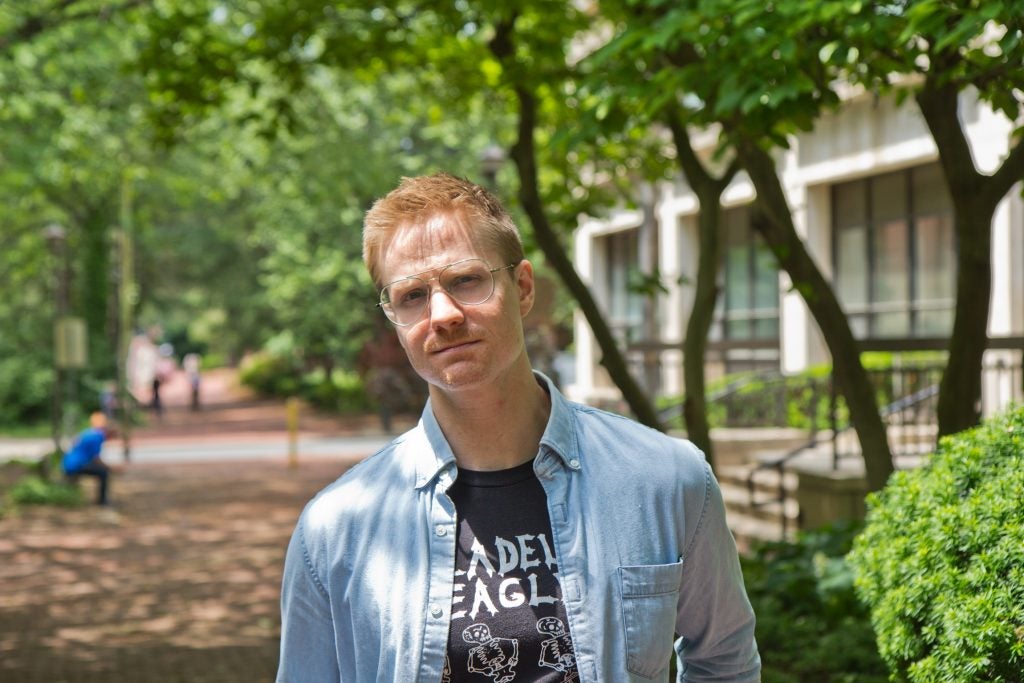
Injecting drugs in public is a problem most often associated with other Philadelphia neighborhoods, such as Kensington. But Teterus and others in Old City say they’re noticing more discarded syringes lately in secluded spaces like this one, which is known as Commerce Street.
This particular walkway has other problems that discourage use by the public, said Joe Schiavo of Old City Green, a nonprofit that works to improve green spaces in the neighborhood. Wedged between the backs of buildings, the passage connecting Market Street, Third Street, and Fourth Street has been neglected for decades, he said, and was formerly used as a dumping ground and illegal parking lot. Tree roots straining against the brick-paved surface have created bumpy bulges, benches are deteriorating, and obscured views into the space from the surrounding streets make it uninviting.
Now, Old City Green is working to give the city-owned walkway and pocket park a makeover it hopes will make Commerce Street more appealing to people who work or live nearby and less attractive to drug users. The organization was awarded a grant from the Community Design Collaborative to develop plans for a revamped “Commerce Street Connector.”
“If people were using this space day and night,” Schiavo said, “that’s enough eyes on the area that this will become safe.”
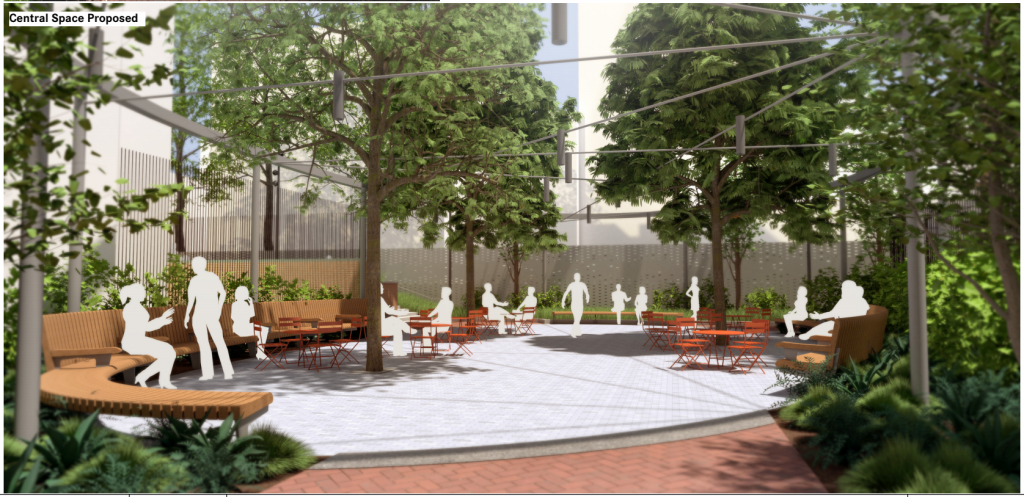
Schiavo and his partner, Janet Kalter, who together operate Old City Green, said that in addition to noticing more discarded needles recently, they’ve seen signs of people camping out at Commerce Street and another garden they care for.
“You can see the evidence of drug use, but I don’t come here after midnight to see what’s going on,” Schiavo said.
The renovation plans call for improvements to make Commerce Street more visible as a way to cut through the block. It would also redesign the central plaza with sleek, curving benches, more greenery, and better lighting to encourage neighbors to use it as a park.
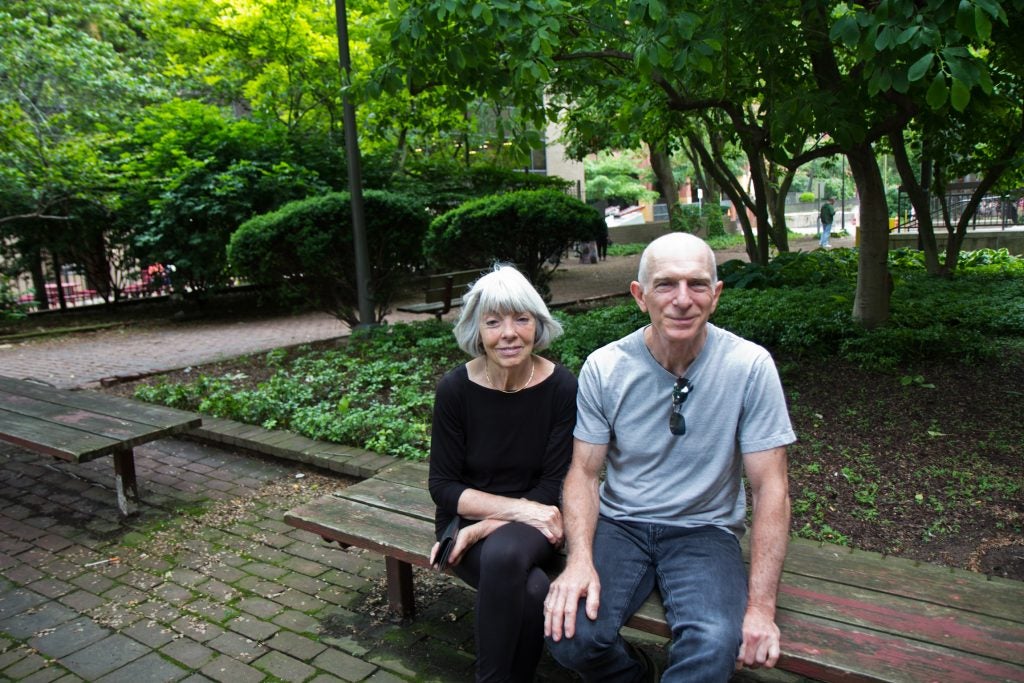
Schiavo is working to raise the $1.25 million the project is estimated to cost, and is hopeful he can get the city government to provide major funding. The property is owned by the Streets Department Right-of-Way Division, and a city ordinance gives maintenance responsibilities to the Department of Parks and Recreation. Old City District and Councilman Mark Squilla have also expressed support for the project.
In the meantime, Teterus is organizing volunteers from the coworking space Indy Hall, where he works as the community director, to clean up the needles at Commerce Street. About a dozen potential volunteers attended a recent Parks Department safe needle-disposal training session at Indy Hall.
Teterus said he hoped the volunteer project would encourage the kind of active involvement with the green space it needs to keep problems like discarded needles at bay for good.
A representative for the city said the Parks Department also picks up discarded syringes at Commerce Street as needed.
Schiavo acknowledged that redesigning the secluded walkway won’t address the underlying problem of the opioid crisis.
“We’re not gonna solve that,” he said. “But we can make it less likely that this is a preferred area. And I think we’ll get there.”
WHYY is your source for fact-based, in-depth journalism and information. As a nonprofit organization, we rely on financial support from readers like you. Please give today.



